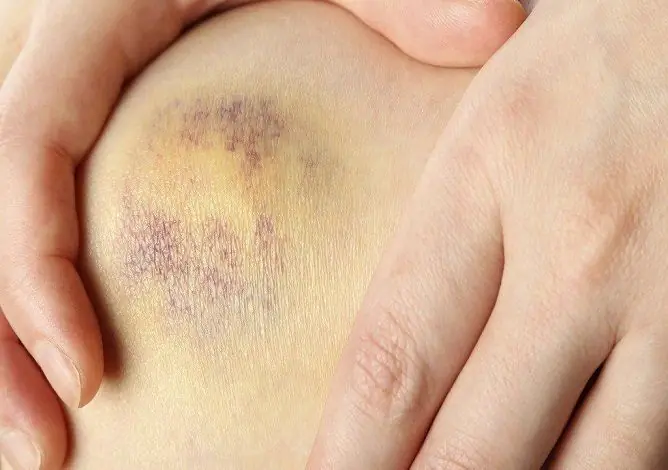- Author Rachel Wainwright wainwright@abchealthonline.com.
- Public 2023-12-15 07:39.
- Last modified 2025-11-02 20:14.
Gonorrhea
General characteristics of the disease

Gonorrhea is an infectious disease caused by gonococci. The disease affects the genitourinary system and is transmitted mainly through sexual intercourse. Every year 62 million people have signs of gonorrhea. More than 170 thousand new infected patients are recorded in Russia every year. In 50-70% of cases, gonorrhea in men and women is combined with other diseases of the genitourinary system, in particular, with trichomoniasis and chlamydia.
How does the infection get into the body?
In the vast majority of cases, gonorrhea infection occurs during sexual intercourse. At the same time, signs of gonorrhea can appear both after normal vaginal contact, and after anal or oral sex. In the last two cases, a person develops gonococcal lesions of the rectum and oral cavity, respectively. It is also possible to get an infection directly at the birth of a child, when the baby gets sick while passing through the birth canal of a sick mother.
In rare cases, gonorrhea in women appears after using the personal hygiene items of an infected person. However, household contamination is still the exception rather than the rule. This is due to two reasons:
- the causative agent of the infection quickly dies outside the host's body;
- in order for gonorrhea to begin to develop, the required number of pathogens must enter the body, and with the household method, this is practically impossible. Thus, you can not be afraid of infection in public toilets, saunas and swimming pools, which, however, does not negate the observance of elementary precautions.
Gonorrhea - symptoms of the disease
Mainly, gonorrhea affects the genitourinary system, but in severe forms of the disease, it also affects other organs (mouth, eyes, joints, pharynx). The first signs of gonorrhea appear 1-2 weeks after infection. The symptoms of gonorrhea are different for men and women.
Gonorrhea in women is manifested:
- purulent vaginal discharge;
- an increase in body temperature;
- pain in the lower abdomen;
- violation of the menstrual cycle;
- an increase in the amount of bleeding during menstruation;
- pain during and after intercourse;
- increased urge to urinate;
- pain during urination;
- swelling and irritation of the external genital organs.
Gonorrhea in men has the following characteristics:
- the appearance of purulent discharge from the urethra;
- soreness while urinating;
- redness of the glans penis;
- swelling in the area of the outlet of the urethra.
Gonorrhea, symptoms of which appeared after anal sex, indicates a possible inflammation of the rectum. Therefore, in case of irritation, itching and purulent discharge from the anus, an urgent need to consult a venereologist.
What are the possible complications of gonorrhea?
Like many other diseases of the genitourinary system, gonorrhea can have serious consequences. In particular, gonorrhea, the treatment of which does not comply with the established rules, spreads from the vagina to other organs, causes infertility, the risk of developing an ectopic pregnancy, pain during sex, and premature birth of a child. In addition, children who contract gonorrhea from their mother often have severe eye, blood, and joint infections. No less dangerous and chronic gonorrhea in men, which leads to inflammation of the ovaries and infertility.
Diagnosis of gonorrhea
If you suspect the presence of gonorrhea, you must contact the skin and venereal clinic and undergo a comprehensive examination of the cervical canal and urethra. Do not be surprised if doctors want to take samples from the rectum, from the mucous membrane of the eyelids and pharynx. They are necessary to identify bacteria and determine methods to combat gonorrhea. In addition, the diagnosis of gonorrhea is confirmed by examining urine and blood samples. Since gonorrhea often develops against the background of diseases such as chlamydia and trichomoniasis, additional smears are taken to detect these and other sexually transmitted infections.
What if you have gonorrhea?
- in no case self-medicate;
- consult a doctor and follow all his recommendations;
- give up sexual intercourse for a while;
- notify all your partners so that they can get tested and start treatment at an early stage;
Gonorrhea - disease treatment

All major treatment regimens for gonorrhea involve the use of antibiotics. In this case, the doctor must prescribe both drugs that affect gonococci, and drugs against chlamydia and other common diseases of the genitourinary system. Directly gonorrhea is treated with cefixime, ciprofloxacin, ofloxacin. Against chlamydia well help: dioxycycline and azithromycin. The dosage and method of administration of the drugs should be chosen by the attending physician.
YouTube video related to the article:
The information is generalized and provided for informational purposes only. At the first sign of illness, see your doctor. Self-medication is hazardous to health!






